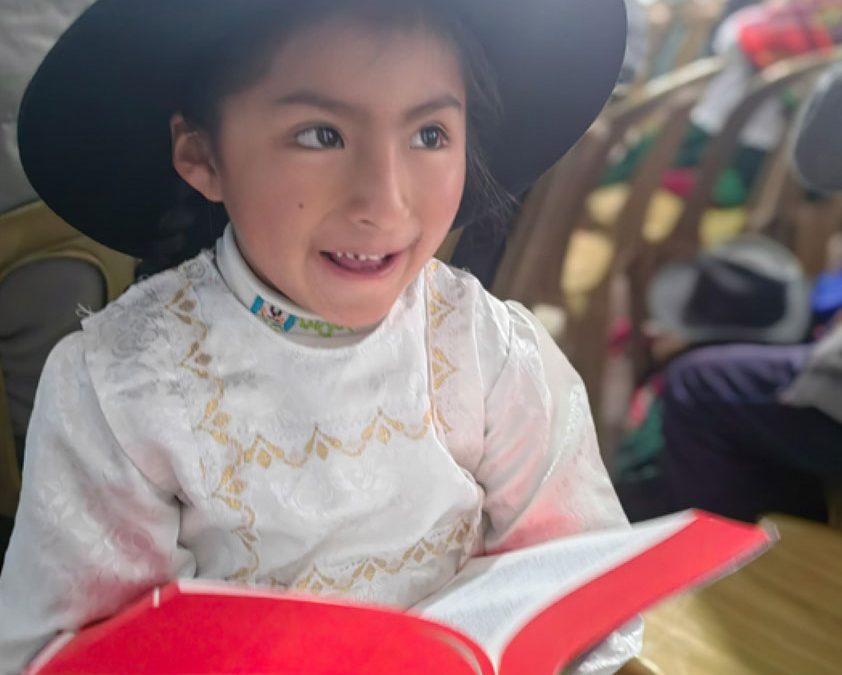Wycliffe Malaysia in Peru – An Unexpected Journey of Faith and Partnership
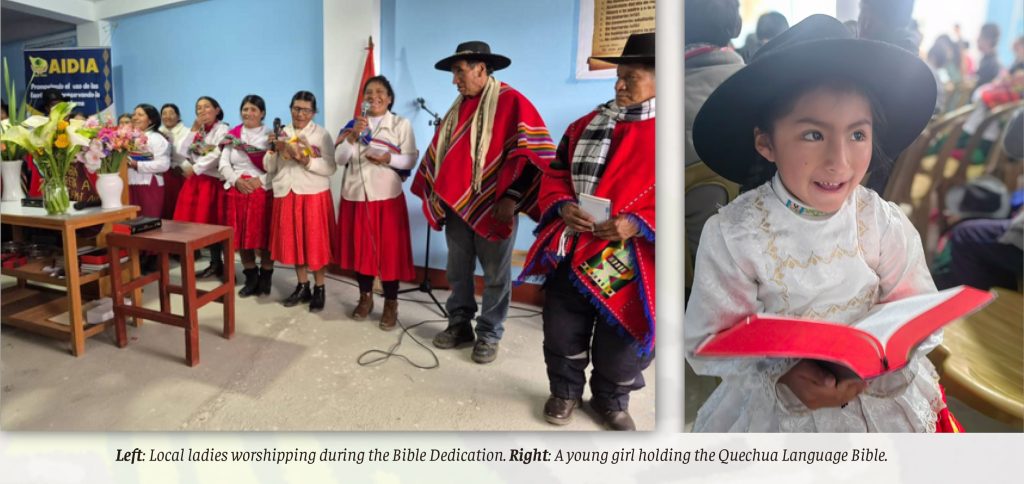
In the fourth quarter of 2024, a sister from Canada who visited AIDIA in Peru encouraged them to reach out to a Wycliffe organization for help as they were preparing to begin several Bible translation projects among the Quechua people groups. Pastor Luis Cerventes of AIDIA then reached out to David Cárdenas, the Area Director for the Americas, who then contacted Nicky Chong, the Director for Asia Pacific, who then contacted WMB.
This chain of connections and a series of conversations quickly turned into a shared vision, culminating in the WMB team traveling across the globe to AIDIA in Peru to conduct a two-week Oral Translation Strategies (hereafter referred to as OTS) workshop with the AIDIA staff in May 2025. We were aware of the challenges surrounding us: the language barrier is significant and the cost of sending the team was considerable. We thank the Lord for a partner organisation who came alongside us to provide the necessary funding.
Life and learning in the Andes
Here, we share experiences, challenges, and insights gained by our team members as they lived for two weeks with the community of a very different culture, climate, and environment.
Evelyn
When I first heard the proposal for us to go to Peru to run the OTS workshop, I was excited but also perplexed – why us who can’t speak Spanish? The workshop is so interactive, with demonstrations, skits, and practicums – how would we run it when we cannot communicate with the participants?
But, the Lord enabled us. He gave us wonderful interpreters who learnt how to conduct oral devotions from Marcus, the Wycliffe Malaysia translation coordinator, on Zoom before the onsite workshop. The participants, who even though knew nothing about Oral Bible Translation (OBT) and some who even thought would waste two weeks of their time, came and gave us their attention. In fact, they gave their 110% for every practical exercise they had to do. We had to keep adapting our prepared schedule according to the needs of the participants and situation over the two weeks. I was amazed at how serious and creative both young and old participants were in dramas and drawing. They definitely taught us about doing devotions differently as they had so many ideas.
At the end of the workshop, they all said they learnt new things regarding translation and Scripture engagement. The director of AIDIA’s comment was my biggest encouragement. He was initially quite skeptical of OBT, but his perspective shifted over the course of the workshop and said that OBT would be a more effective approach to use for the jungle group that AIDIA will start a translation project in. I knew that they understood a very important translation principle that we demonstrated in our workshop. We didn’t waste their time, nor ours.
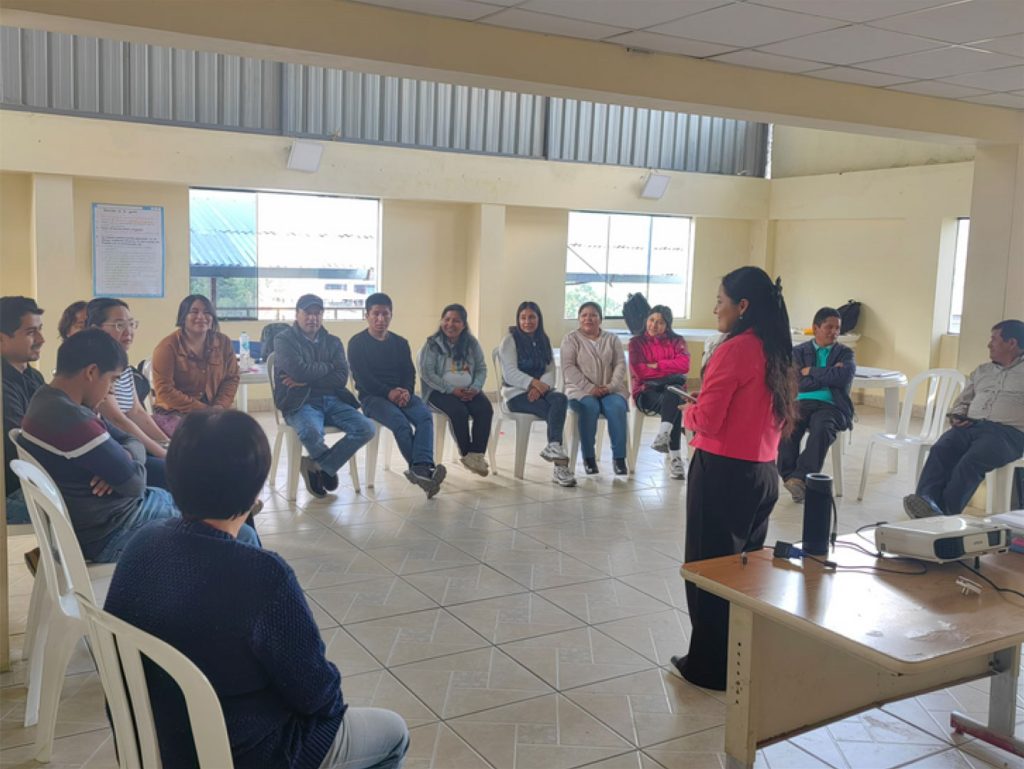
Poh Swan
Will it work? I kept asking this question once I knew I was going to Peru to help with the OTS workshop. But praise God! He sent three interpreters to help us lead the oral devotions in the participants’ own language during the first week of the workshop. One highlight for me was seeing them retell the Bible stories using props or drawing, and then linking the stories with their lives. It made me want to know everything they were discussing.
One of the things I enjoyed was the time spent with the participants. I have never used my translator app so much in my life until my time in Abancay! It was frustrating not being able to communicate with them, but they were very understanding and translated their speech too. I remember during the workshop, the participants of the group I was facilitating took turns telling the Bible story they were working on. I wanted to listen to their stories, so I turned on my translation app, but it did not work. I found out later it was because they were using the Quechua language and the app did not have the speech input for the Quechua language yet… Too bad for me!
Additionally, I learned a valuable lesson from the participants. Since they were AIDIA staff, each one had a designated job, like facilitators, teachers, or administrators. But they had other tasks too, like serving food, cleaning the compound, doing the laundry, and cleaning and preparing rooms for guests to use. I was humbled when I observed them doing different tasks on the premises, and they see these other tasks as their responsibility too.
Another main highlight was the Apurímac Bible Dedication in Chuquibambilla. The journey by road from Abancay to Chuquibambilla was hard; it was winding and bumpy for four hours. But, the scenery was stunning, with streams surrounded by snow capped mountains. People from different villages came for the dedication and glorified God by singing. It was clear that they loved singing, and for a fleeting moment, I wished they could sing the Oral translation of Psalms during their celebration. If they could use the OBT strategies to do that, then I know our time in Peru was a success.
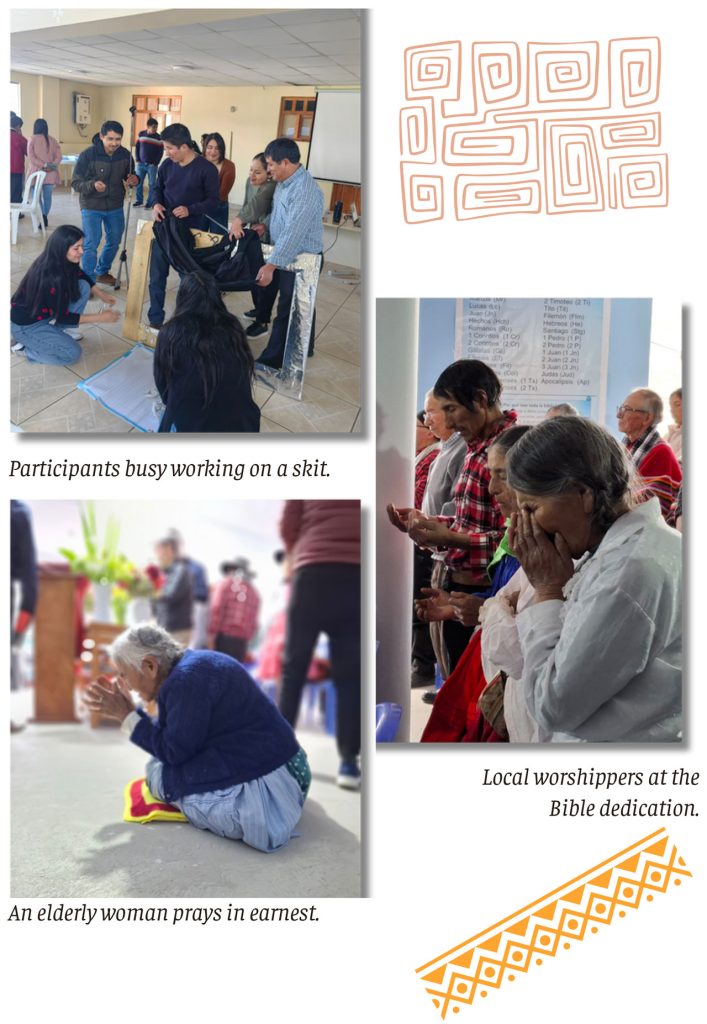
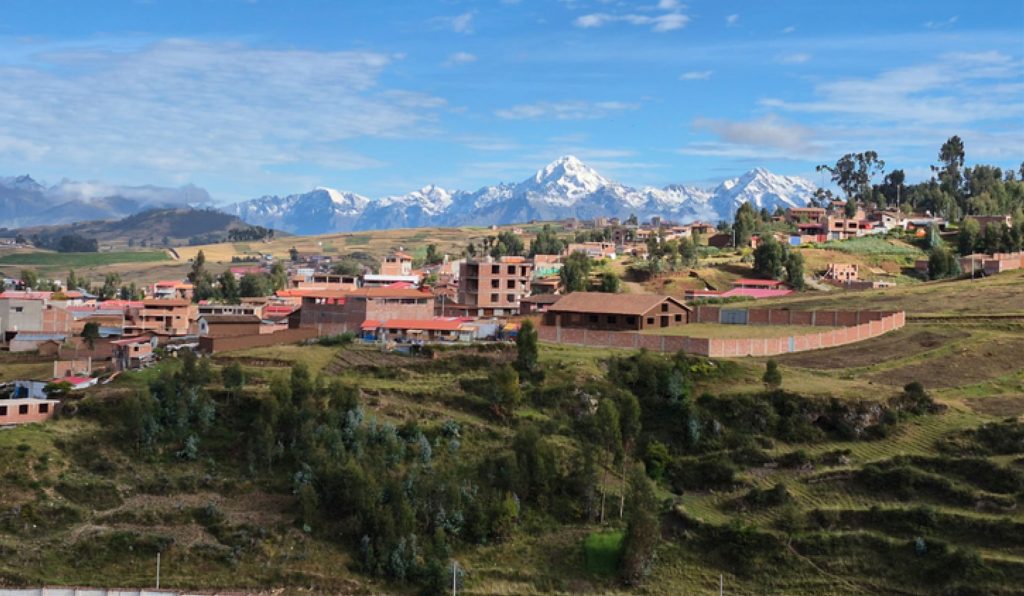
Irene
One of my biggest takeaways from the OTS Workshop in Peru was a deep sense of humility. Some participants had previously served as translators for their written Bible translation project. Seasoned facilitators themselves, they came to the workshop not as experts, but as eager learners. Despite their experience, they engaged wholeheartedly in every session, approached each task with seriousness, and demonstrated a genuine desire to grow. Their openness and enthusiasm were both inspiring and humbling.
Another unforgettable moment came during the Apurímac Quechua Bible Dedication. Church members, some who had travelled hours by van just to attend the ceremony, and some of whom had never seen foreigners before, gathered together for the sake of God’s Word. They were mostly farmers and herders, yet they came bearing gifts—their own produce—which they freely shared with others. I was deeply moved by the joy, love, and passion they showed throughout the celebration. There was appreciation of having the Bible in their own mother tongue, and I felt humbled for taking the Bible I have for granted.
Before we departed, we spent time praying with the community. One particular prayer request touched me deeply: they asked God to send them a pastor. They were hungry and dedicated to God’s Word, but no pastor has been willing to serve in such a remote and rural area. Pray that God will call and send a shepherd who will serve with love and faithfulness.
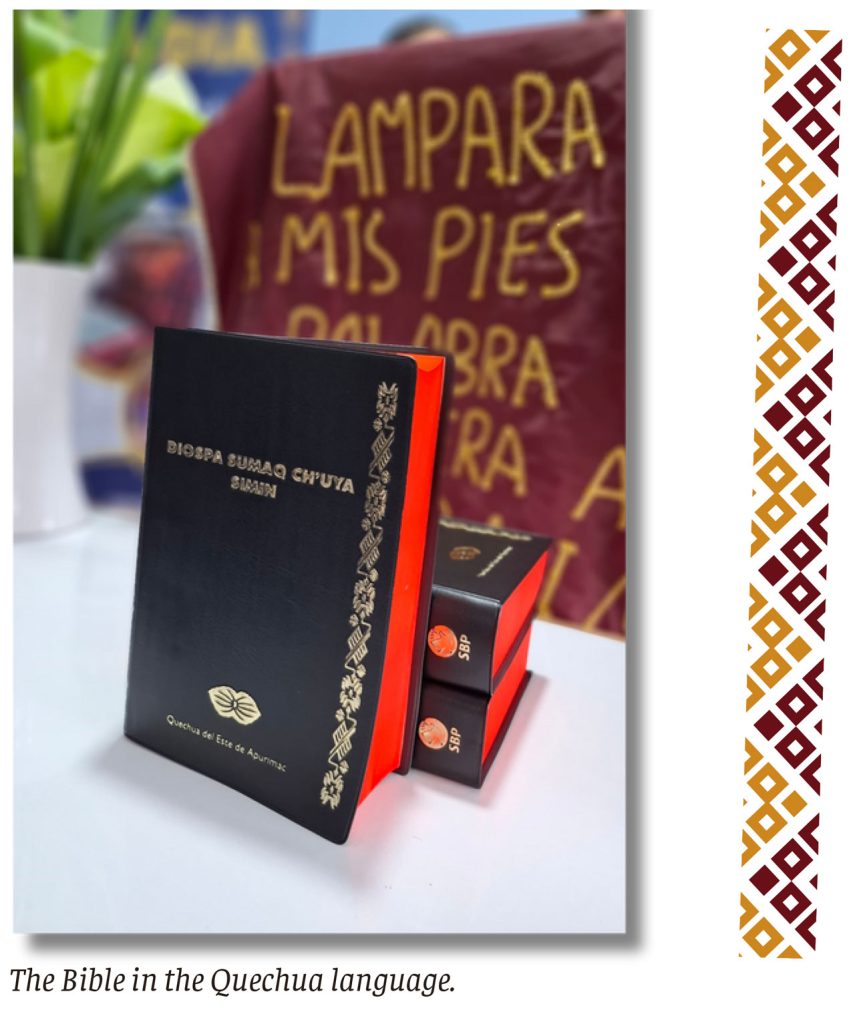
Tomomi
Facilitating the OTS workshop in Peru was eyeopening and humbling. The inability to communicate directly with participants and the unfamiliar environment added a sense of helplessness in gauging their responses and engagement.
However, during the first introduction session, listening to participants share their journeys with AIDIA was surprising and inspiring. Many had university degrees and had willingly accepted janitorial roles. There was a participant who left a particularly deep impression on me – although he held a leadership role in his own community, he was willing to humbly learn and devote himself to serve as a mother tongue translator for Bible translation work. These testimonies showed a humility that deeply moved me.
During the first session on OTS Process, I was surprised to find that more than half the participants were unfamiliar with translation work. I had anticipated some variation in experience levels, but it was greater than expected. Despite this, their enthusiasm grew as the workshop progressed, particularly during a drama activity, which brought energy and excitement to the room.
The main limitation we faced was communication. Much of the feedback had to be interpreted, which inevitably resulted in the loss of some nuances. When facilitating my group, I was unsure if I could connect with the members, or be a burden to them. Nonetheless, it was encouraging to hear one experienced translator express how moved he was by the process, and how he intended to apply the strategies in his Bible study sessions.
Overall, this workshop has shown me that experiential learning transcends language barriers. I learnt about intercultural facilitation by adapting content to the participants, and above all, it pushed me to further internalise the purpose of each OTS session, and of Bible translation.
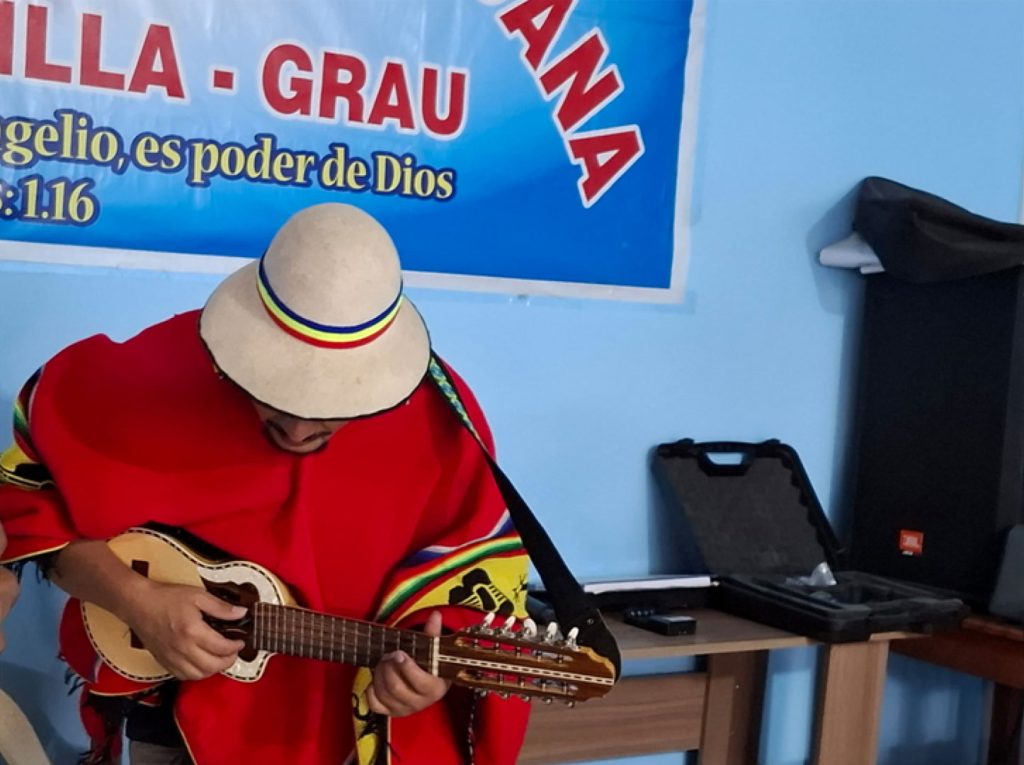
Beyond our borders, beyond our plans
In 2023, Wycliffe Malaysia set out with a vision to develop our resources for Orality to serve our country and the Asia Pacific region. But God had greater plans for us. In His faithfulness, He opened doors and led us to places we never imagined. The journey to Peru is a testimony to His Sovereignty, His provision, and His heart for the nations. To God be the glory.

